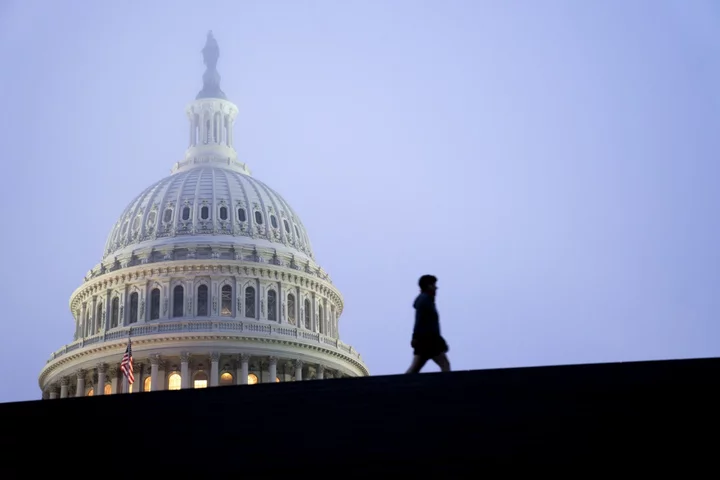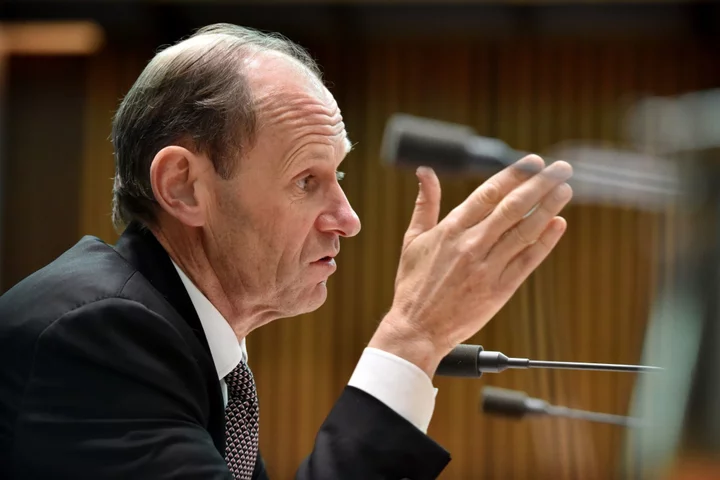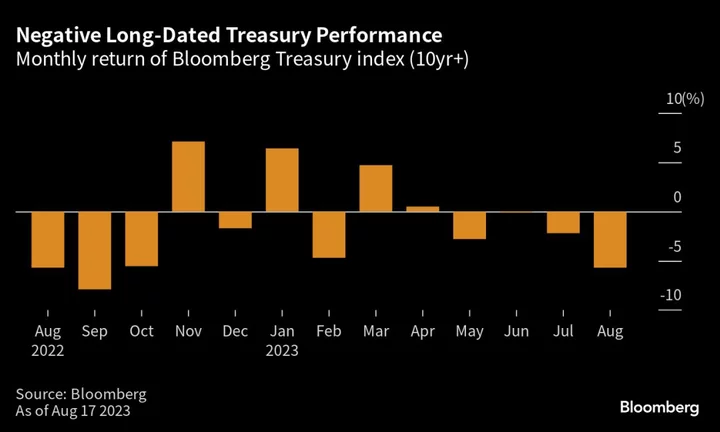Debt-limit negotiations hit an impasse Friday as House Speaker Kevin McCarthy blamed the White House for resisting spending cuts, casting doubt on efforts in Washington to avert a catastrophic default.
McCarthy spoke shortly after his hand-picked negotiators abruptly walked out of talks with White House officials, a reversal from the Republican leader’s optimistic view that an deal could be reached as soon as the weekend. The setback weighed on Wall Street where shares slid on the news.
“We’ve got to get movement by the White House and we don’t have any movement,” McCarthy, who was not in the meeting, said. “So yeah, we’ve got to pause.”
There was not a dramatic flare-up in the room before negotiators left, according to one person familiar with the negotiations. Another person familiar with the talks said it wasn’t a specific issue but ranged broadly across GOP budget-cutting demands.
“Look, they’re just unreasonable,” said Representative Garret Graves, one of the Republican negotiators, moments after he walked out of the session. Graves’ comments came a day after McCarthy said he could see a deal coming together with a House vote next week.
McCarthy’s uncharacteristically upbeat comments Thursday on the prospects for an agreement on the US borrowing limit sent stocks upward, with the S&P 500 hitting a nine-month high, closing just shy of 4,200. Treasury Secretary Janet Yellen has signaled a default could become a risk as soon as June 1.
But news of the breakdown on Friday triggered a slump in stocks, with the S&P 500 at one point losing almost 0.8% from its high of Friday’s session, though the decline moderated later. The index closed down 0.1%. Yields on US Treasury bills that mature in early June resumed climbing Friday, showcasing concerns about potential payment-default risks.
Past debt-limit showdowns have featured similar breaks in negotiations, and some observers were anticipating such a development in the current battle. Tobin Marcus at Evercore ISI wrote to clients on Thursday saying, “We caution investors not to overestimate how quick or smooth the path to the finish line will be.”
White House aides told Republicans that just as there were proposals that the House speaker had explained would prompt too many members of his party to defect – like raising additional revenues through closing tax loopholes – there were policies the GOP side was pursuing that would lead to mass Democratic defections.
Graves, a Louisiana Republican, said he did not know if the negotiators would meet again Friday or over the weekend. He went into McCarthy’s office in the Capitol later Friday.
The speaker left the Capitol on Friday evening without updating reporters.
A White House official acknowledged differences between the two parties and said talks would be difficult but that a deal was still possible.
“Unless they are willing to have reasonable conversations about how you can actually move forward and do the right thing, we’re not going to sit here and talk to ourselves,” Graves said, as House Financial Services Committee Chairman Patrick McHenry stood near him.
Minutes after the Republican negotiators walked out of the talks, former President Donald Trump posted a social media statement saying GOP lawmakers shouldn’t make a deal unless they get “everything they want” and added “including the ‘kitchen sink.’”
The conservative House Freedom Caucus on Thursday called for an end to bipartisan debt-limit talks, insisting instead that the Senate vote on the House Republican bill passed in April with sharp spending cuts across the board. Progressive Democrats mounted a fervent campaign opposing potential concessions to Republicans, including expanded work requirements to be applied to food stamps, welfare and Medicaid.
Sixty-six progressive House Democrats on Friday urged Biden in a letter not to compromise with Republicans on expanded work requirements or cuts to safety-net and climate spending and instead invoke an untested interpretation of the Constitution’s 14th Amendment to override the debt limit.
Market participants have warned of a surge in borrowing costs and blow to equities in the event of any default, with reverberations to the global economy that could rival the 2008 crash.
--With assistance from Jennifer Jacobs, Alex Tanzi, Erik Wasson, Justin Sink and Jarrell Dillard.
(Updates with market close, Trump tweet, progressives’ letter, beginning in seventh paragraph)









